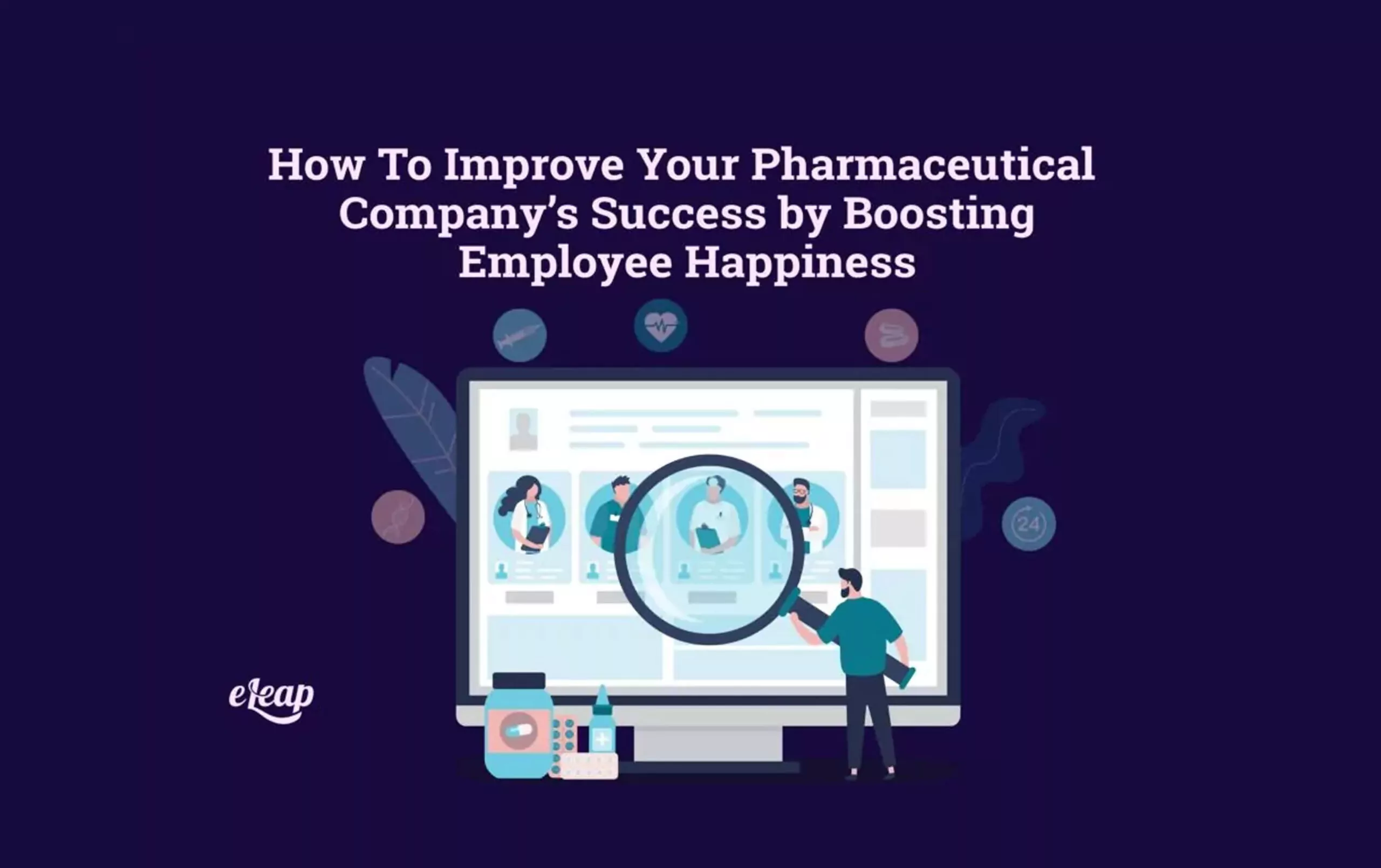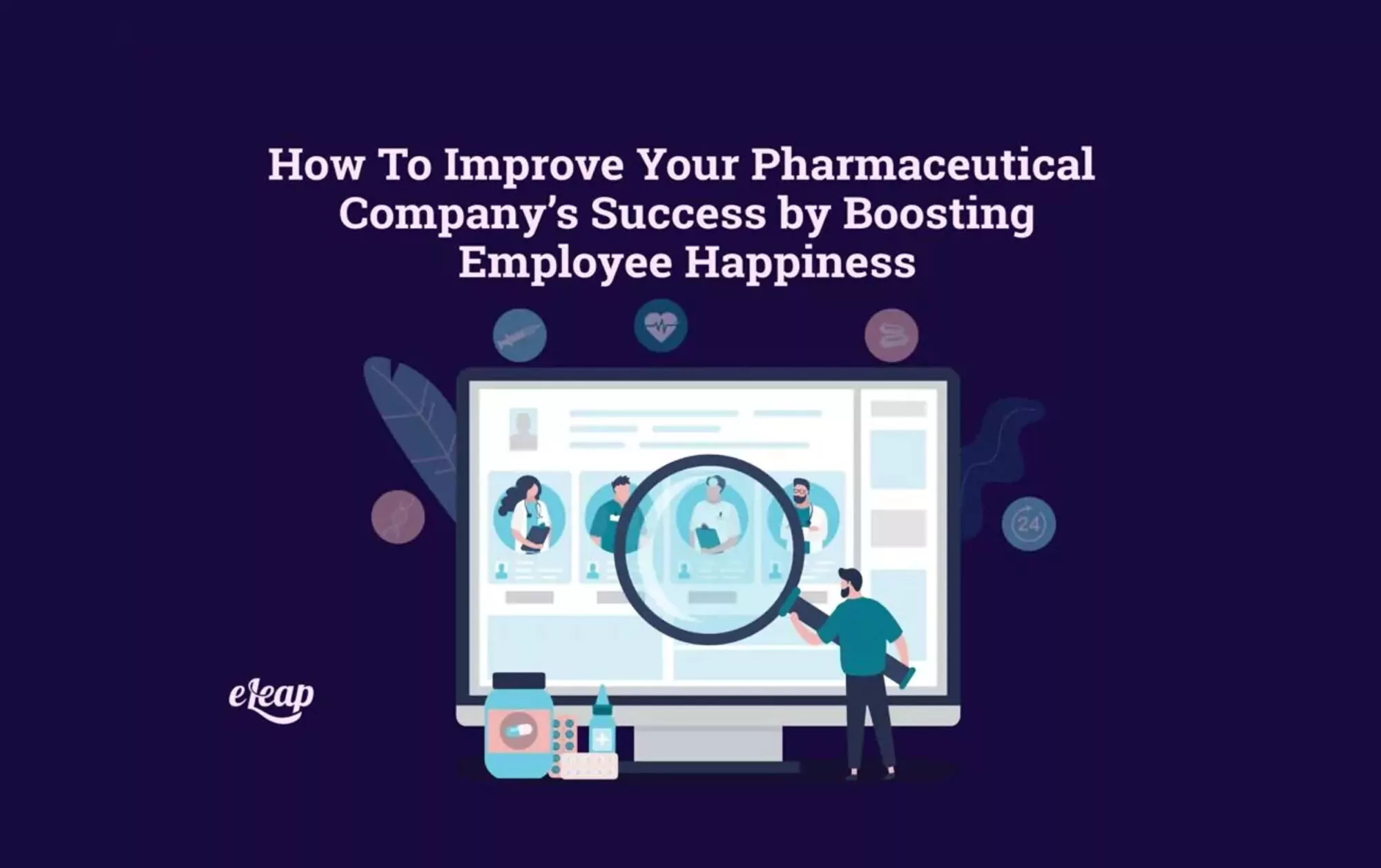How To Improve Your Pharmaceutical Company’s Success by Boosting Employee Happiness

Successful organizations have happy employees, and pharmaceutical companies are no exception. By fostering a challenging work environment, giving employees a greater say in their respective fields, and encouraging and supporting their idea generation, pharmaceutical company leaders can motivate their employees to excel and grow.
In order to justify the expense and time necessary to create a satisfying workplace, leaders might need to understand how job satisfaction impacts performance and productivity.
It’s important to remember that happy employees don’t just improve the way your company runs, they’re also critical for happy customers. Researchers found that happy and engaged employees increased customer loyalty in pharmaceutical companies.
This makes perfect sense. If employees are unhappy, it will show in their work and the way they treat customers. A dissatisfied employee who isn’t happy with their job will rub off on anyone they interact with, customers included. If employees are cheerful and clearly enjoy their jobs, it will bode well for customer service. Customers who interact with employees who clearly want to be at work are more likely to purchase your products and have a pleasant experience.
What’s more, it’s unlikely that customers will return if they aren’t treated well. But employee happiness is important for all pharmaceutical workers in general, not just those who have direct interactions with consumers. In this article, we will talk about all the ways that boosting employee happiness can benefit your pharmaceutical company.

More Dedication
It has been shown that employees with a sense of satisfaction are more likely to stick with the job they have. Therefore, the number of employee turnovers and instances of absenteeism decrease the happier your employees are. Pharmaceutical companies can lose millions of dollars when a pharmacist fails to show up at work, even if it’s just for a few days. If you have happy workers, they’re far more likely to show up for work, as well as stay with your company in the long run. This saves your company a lot of money related to hiring, training, and turnover.
It Sparks Growth
When a pharmaceutical company upgrades equipment or introduces new processes, this is when you’ll see employee satisfaction paying off. The company will grow when employee satisfaction is high, and employees will work together to update and implement procedures that enhance the way your organization runs as a whole.
Disgruntled pharmaceutical employees will complain when new equipment or processes are launched, thereby slowing down the productivity of the whole organization. Employees who are satisfied within the workplace will take a hands-on approach to any changes made to the business.
It Helps with Referrals
You may not realize it, but the happier your current employees are, the easier it is to find, hire, and integrate other highly talented workers. If leaders show an interest in the overall welfare and job satisfaction of their employees, they also cultivate loyalty. When employees are loyal to a company, they also become more emotionally invested in their jobs and their work. Loyal, satisfied pharmaceutical workers are much more likely to promote highly talented candidates to open positions in the company.
Since it can be difficult to find talented, qualified employees to fill open positions, gaining the loyalty of your current employees could encourage them to suggest people for hire. Employees who are satisfied and loyal will not only strive to recruit the best talent for the organization, but they will also take it upon themselves to orient the new workers as efficiently and quickly as possible. Thus, the company will continue to be highly productive.
It Promotes Responsibility
Having workers within a pharmaceutical company who are responsible is critical. It means they can be trusted, held accountable, and don’t need to be micromanaged all the time. When employees feel content with their work, they also feel empowered to dictate how it should be done. Employees who have a sense of responsibility improve both their own performance, as well as the performance of the company. In addition to feeling responsible for making their respective departments more productive, happy employees pass their sense of satisfaction to other employees to help the pharmaceutical company remain competitive.
What’s more, responsible employees are more likely to take accountability for their actions, as well as hold their coworkers accountable. In an industry that relies heavily on the accuracy and accountability of its workers, having responsible employees is critical to preventing potentially dangerous mistakes.
It Promotes Better Leadership
Overall employee happiness isn’t just important for pharmaceutical workers, it’s also critical for management. Leaders who are satisfied with their jobs are more effective than those who are dissatisfied. Happy leaders make better decisions, manage their time, and are more capable of making informed decisions than managers who are unhappy and dissatisfied.
Additionally, the two tend to be linked in terms of workplace satisfaction and creative leadership. When workers are happy and positive about their jobs, their brains are more innovative and efficient. Employees who are satisfied also make good decisions and think outside the box, especially when they are frustrated. Those who are unhappy in their jobs are more likely to devote less time and resources to their work, resulting in lower productivity.
Creating a happy work environment for all employees doesn’t happen by itself in a pharmaceutical organization. It takes a lot of work, and changes won’t happen overnight. However, in the long run, taking all necessary measures to ensure the utmost employee satisfaction and happiness is well worth it.
Remember, if you want to boost happiness, one of the first things to do is find out where satisfaction might be lacking. Communicating with employees and soliciting feedback are good ways to keep them happy and satisfied. Implementing procedures to make sure your employees are happy can take a lot of work and effort, so hopefully, this article will help you to understand why it’s so important.